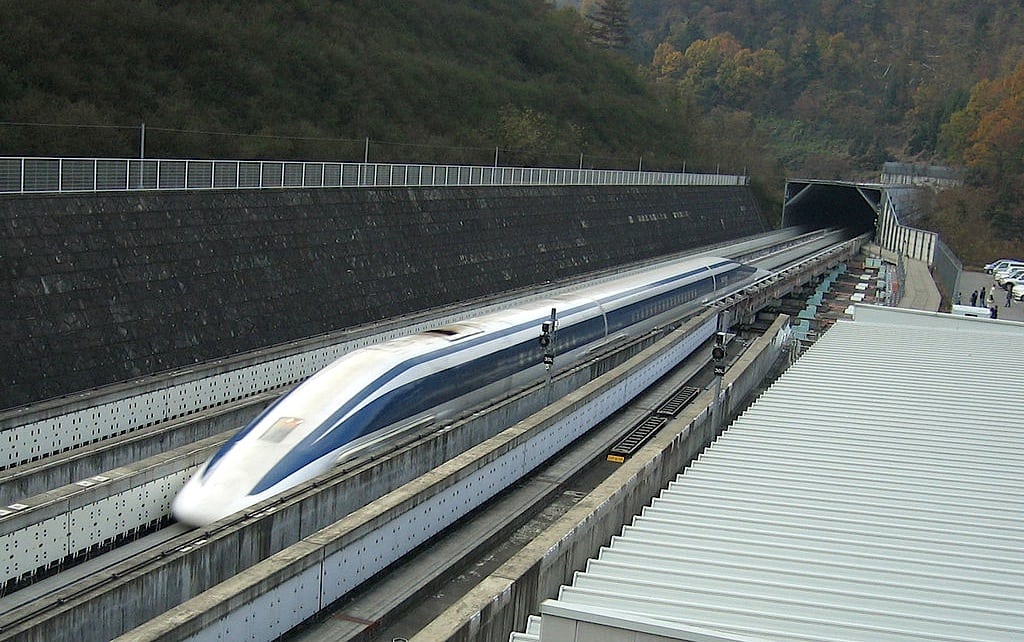When a bullet isn't fast enough: Japan one step closer to 311 mph Maglev train

Skift Take
Now Japan is just showing off.
Japan's "floating" trains of the future, designed to travel at speeds of 311mph, have undergone their first test tracks.
The new generation L0 Series trains, which employ the latest magnetic levitation technology instead of conventional wheels, will begin commercial services in 2027.
The first five cars of the new train, which has a distinct aerodynamic "nose" at the front, were displayed on a test track in Yamanashi Prefecture.
